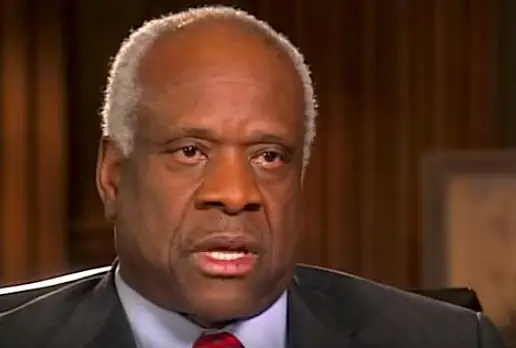
If Justice Clarence Thomas is famous for anything — other than complete, stone-cold silence — it’s his staunch conservatism and regular disagreement with liberal justices. But on Monday, in the Supreme Court’s landmark Cooper v. Harris decision, Thomas joined his liberal peers to rule racial gerrymandering unconstitutional.
For some background, Cooper v. Harris involves two congressional districts in North Carolina that were gerrymandered according to what appeared to be racial lines in the 1990s by the state’s Democratic legislature. Republican voters sued the state for violating the 14th amendment’s equal protection guarantee, and the state responded by acknowledging that it had accounted for race in its redistricting, but claimed that it had done so in order to comply with the Voting Rights Act by creating majority black districts to protect black voters in “historically racist states,” according to Slate.
The decisive vote to strike down racial gerrymandering came from … Clarence Thomas? https://t.co/095MHpImti pic.twitter.com/JMRprXnCCz
— Slate (@Slate) May 23, 2017
Cases such as Shaw v. Hunt and Easley v. Cromartie have previously addressed racial gerrymandering, with liberal justices generally favoring it as a means to protect minorities’ ability to represent themselves. But it also had the effect of protecting Republican seats, as well, and over the years, gerrymandering along partisan lines became a norm that was detrimental to liberals.
In an opinion by Justice Elena Kagan, Kagan identified gerrymandering as unconstitutional “when legislators have placed a significant number of voters within or without a district predominantly because of their race, regardless of their ultimate objective in taking that step.”
In essence, state legislatures can no longer blend race and party, drawing gerrymandering lines around predominantly black districts and claiming to discriminate against Democrats rather than African Americans — a recurring issue in the South.
Still, partisan gerrymandering remains legal and will allow legislators to draw district lines that favor their party and allow them to hold seats. But looking forward, this could change dramatically when the Supreme Court hears Gill v. Whitford in its next term. This case will assess whether partisan redistricting hampers free speech and equal protection, and it will be interesting to see if Thomas will still side with the liberal justices on this case.
Featured image via YouTube




